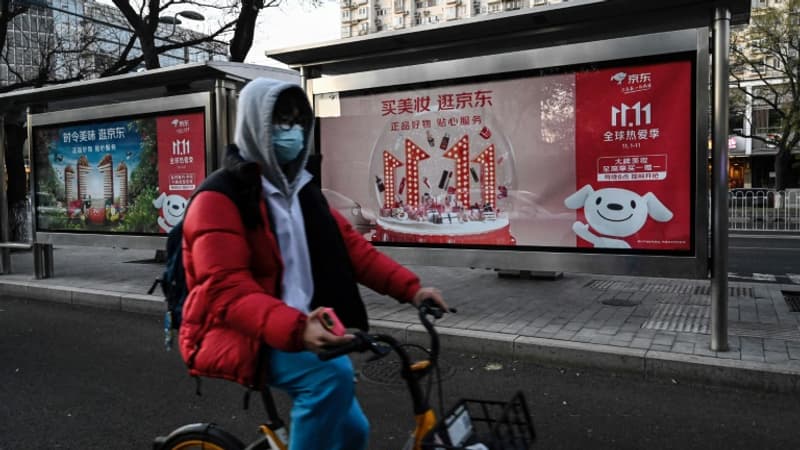Chinese e-commerce giants could break a sales record for their “Singles’ Day” sales this Friday, but without euphoria due to the economic slowdown and the acquisition of technology. For more than a decade, November 11 has been an online shopping spree in China due to the very attractive discounts offered by the platforms.
At the origin of this event in 2009: the e-commerce giant Alibaba (and its Taobao and Tmall sites), now imitated by all its competitors such as JD.com and Pinduoduo. November 11 is celebrated as “Singles’ Day” due to the repetition of the number “one” in the date (11/11).
Again this year, the country’s economic slowdown, exacerbated by the continuation of anti-Covid restrictions, should weigh on consumption. In spite of everything, Single’s Day turnover could exceed 1 billion yuan (137 billion euros) during this edition, estimates analyst Xiaofeng Wang, from the research firm Forrester. That amount, which includes all sales made by Alibaba and JD.com, was 965 billion yuan last year, more than the annual GDP of some countries.
“less but better”
However, its growth should slow down, after a double-digit increase in the past. Today online “there are constant reductions” which has somewhat trivialized this type of event, emphasizes Vincent Marion, co-founder of Slingshot, a communication agency present in Shanghai and specialized in technology. From now on, “the Chinese consume less but better” moving up the product category, and some favor “responsible” consumption.
Before the pandemic, these sales used to be accompanied by an intense media campaign from Alibaba: a giant screen showed the evolution of transactions in real time. Throughout the day, the media did not lack superlatives to comment on the number of orders, which far exceeded tens of billions of euros. In the streets, mountains of stacked packages and an army of delivery men on the bridge. Single’s Day “was for China an event in the national sense,” recalls Vincent Marion.
gala finished
Celebrities were invited to the Alibaba headquarters in Hangzhou (east) for a gala, such as the American singer Taylor Swift in 2019 or the queen of reality TV, Kim Kardashian. But since last year, no more bragging. “Alibaba started saying ‘now we’ll have to be more sober’ … we felt they wanted to keep a low profile,” says Vincent Marion.
Since 2020, powerful internet companies have been in the crosshairs of power, due to their business practices and the opacity of their data collection. This regulatory campaign has caused the sector to lose billions of euros in market capitalization and has shaken several players, including Alibaba. At the same time, various scandals have splashed celebrities.
Influencer Viya, who was the rain and shine of e-commerce, disappeared from social media last year, following a tax evasion investigation. Each of her interventions typically resulted in tens of thousands of orders.
Source: BFM TV


